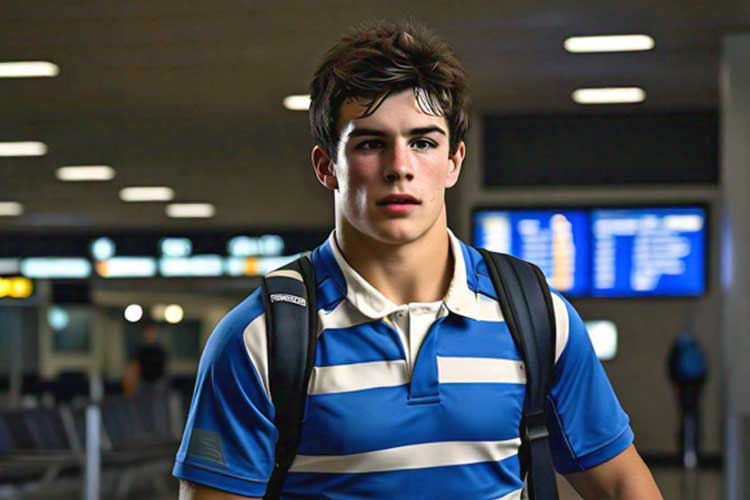What are the realities and what is the return on investment can you expect?
Many parents and players are overwhelmed with the decisions they need to make about their players’ futures, post schooling in South Africa. For many it seems like there are no real opportunities in the country to remain committed to South African rugby for various reasons, which most of these reasons are also heightened by the political-economic landscape, that drives feelings of anxiety, rejection, and often abandonment. It seems attractive to invest into academies or tour operators who promise lucrative international play opportunities and contracts.
But what are the realities of these opportunities that you should question and research before you make these decisions based on emotion and expectation?
For a parent or sponsor who has access to unlimited funds and are happy to spend money on a “gap-year” experience and able to support the player’s living expenses internationally – by all means it’s a privilege to afford a player such an experience, without any concern about a career outside or after rugby in the event of injury or other unforeseen events.
But for the average parent and sponsor funds are limited for post matric plans, and it is also true that for every parent their child’s future whether in sport, business, or life, is of great concern. As such, careful consideration should be made in terms of where those funds are spent to guarantee the best outcome for their futures, even if they all dream of being part of a rugby world cup. Although international tours and play might sound attractive, as well as a possible, (not guaranteed), contract at a 3rd Tier rugby ranked country at an attractive exchange rate remuneration, the realities are that many players, parents, and sponsors are not prepared, nor fully understand what these promised opportunities hold.
Typically, in South Africa there are two approaches to lure parents into investing hard-earned and limited funds into these promises.
- Tour Operators: who scout at tournaments and inform players that they have been “selected” to their teams to tour anywhere from Portugal, Italy, France, and Ireland. It appears as if it is a niche opportunity and the player and parents feel honoured for the “selection”. Parents are often willing to obtain financial loans for a two- week play, stay and travel experience. It is indeed an experience for a player that has never played a match against an international side, as well as travelling to an international destination with a specially branded tour clothing kit. But what is the real sustainable value that he/she receives after such a tour? The tour operator’s main business is to set up matches at clubs that they are associated with and organise a few site-seeing activities, over a few days, with some meals included. The number of players that ever gets a real opportunity to these clubs or teams against who they compete are questionable. Average cost R56 000- R70 000, average 10- night stay, depending on the destination- excluding pocket money and some meals.
- Academies: who offer overseas tour packages as part of their fees, with the promise of an overseas contract as a speciality service and skills taught to their players. Contracts in France and the UK for Under 21 are far and few- as First Tier rugby countries all have quotas on international player allowances in their teams. It is only top rugby players who will ever receive an invitation directly from such clubs with a lucrative contract or players with a heritage to such countries. For most of the 3rd tier countries the club offer is never enough to support a player’s living costs and it is the parent and or sponsor who must supplement living expenses in Euro or Pounds. Average cost R85 000- R96 000 for 9 months at the academy and a two -week tour.
What are the alternatives?
- Attend an Institute that offers an accredited rugby development programme, with a sports-science based data driven monitoring and evaluation system that can compile accurate reports and statistics of the player’s improvement that will ultimately serve as a professional and credible reference and CV compilation. These Institutes, because of their Provincial Union pathways, offer direct opportunities to A- League club competitions, Currie Cup trials and other national competitions. This will prepare a player properly for international play opportunities at a later stage when he/she is better equipped , conditioned and often rehabilitated after older injuries. The truth is international clubs will not invest into players without trach-records, professional match footage and credible references unless they are already rugby union players at a semi-or professional level. Adding a provincial cap of a national team to a CV is more meaningful to be able to secure international contracts at a sustainable remuneration.
- Institutes offer a variety of accredited academic programs and rugby studies with World Rugby, within a reputable high performance rugby development schedule, that can secure a future after rugby, assure work opportunities nationally and internationally to supplement a basic club offer contract. It also prepares the player emotionally and physically,( injury prevention) for the challenges of international rugby, communication barriers and financial planning. Having a qualification in your backpack to accompany you on your journey for life prepares the player for a plan B. This is a real and tangible and sustainable investment.
- Accredited institutes allow parents to obtain study loans that will cover the programs, and the repayments are spread over a period of time, in comparison to a massive once-off expense for a limited period.
Average cost R56 000- R89 000 for 12 months including an accredited national program.
Further helpful tips;
- Don’t ever abandon your South African rugby roots as you might need to return to them if expectations abroad are not met. Remain in contact with a rugby team head coach who has credible ties to a rugby union.
- Be very well prepared for the country you are leaving for, understanding the language barriers, financial systems and other challenges.
- Understand the club structure and rugby culture you are leaving to,other nations rugby is very unique in their culture and it is not a “shoe-fit” for all.
- Learn to speak a foreign language when leaving for a country where English is not the 1st language as understanding instructions and coaching will be difficult,
- Don’t ever underestimate the value of an education, post matric, no matter how lucrative your sport journey may appear- as this is your plan B both nationally and internationally.
- Find a rugby institute who can offer you real opportunities if you qualify with secure international links, that offers long term benefits and is more than a 2-week short stay journey. This implies a succession plan in development that continues at an international academy or institute such as Leicester Tigers in the UK.
- Find a rugby institute with qualified sport scientists and accredited strength and conditioning coaches with an holistic approach to exercise medicine, rehabilitation and wellness.
- Women’s rugby in South Africa has a long way to go to prepare players for the far advanced women’s game internationally. Institutes who have an experienced and credible coaching team with women’s rugby, such as the Harlequins international rugby institute, offer grass-root rugby development programs to high performance rugby programs , life-skills and rugby understanding for women at all levels and from all backgrounds.
Author: A parent who has been there, done it, and worn the “international promise” T-shirt- with nothing to show for it but an empty bank balance, and an unemployed 20-year old player. Don’t be another victim.
References:
- Uxi Sport- a private equity sport development and education institution.
- Journal of Sport Science




